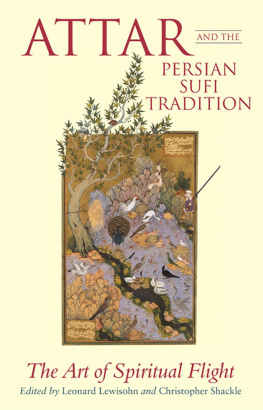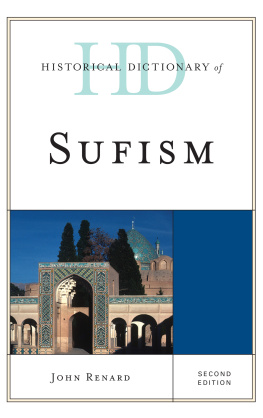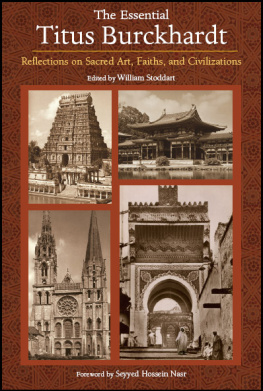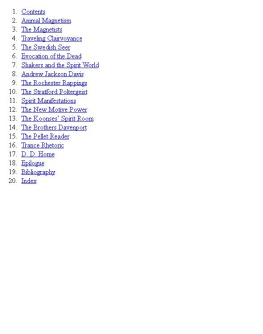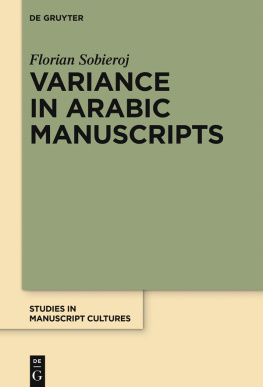Routledge Library Editions: Islam
The Darvishes
First published in 1868
This edition first published in 2008 by
Routledge
2 Park Square, Milton Park, Abingdon, Oxon, OX14 4RN
Simultaneously published in the USA and Canada by
Routledge
270 Madison Ave, New York NY 10016
Routledge is an imprint of the Taylor & Francis Group, an informa business
Transferred to Digital Printing 2008
All rights reserved. No part of this book may be reprinted or reproduced or utilised in any form or by any electronic, mechanical, or other means, now known or hereafter invented, including photocopying and recording, or in any information storage or retrieval system, without permission in writing from the publishers.
British Library Cataloguing in Publication Data
A catalogue record for this book is available from the British Library
Library of Congress Cataloging in Publication Data
A catalog record for this book has been requested
ISBN 10: 0-415-42600-6 (Set)
ISBN 10: 0-415-44260-5 (Volume 45)
ISBN 13: 978-0-415-42600-8 (Set)
ISBN 13: 978-0-415-44260-2 (Volume 45)
Publishers Note
The publisher has gone to great lengths to ensure the quality of this reprint but points out that some imperfections in the original copies may be apparent.
Authors Preface
T HE object of this volume is to afford information in regard to the Belief and Principles of the Darvishes, as well as to describe their various modes of worshipping the Creator.
That the Spiritual Principles of the Darvish Orders existed in Arabia previous to the time of the great and talented Islam Prophet cannot be doubted. The historical portions of the Old and New Testanlents were also well known among the Arabs, differing traditionally, however, in many respects from the narratives of the Sacred Writings; and if a conjecture may be made as to the starting-point of Islamism, we would say that it originated in the act of perfect submission of Abraliain to the will of the Almighty, when he determined to offer up his son Isaac in obedience to the Divine command.
The spiritualism of the Darvishes differing in many respects from Islamism, and having its origin in the religious conceptions of India and Greece, perhaps the information I have been enabled to collect together on the subject may not be without interest to the reader. Much of this is original; and having been extracted from Oriental works, and from Turkish, Arabic, and Persian MSS., may be relied upon as strictly accurate. In procuring materials from original sources, valuable assistance has been rendered me by personal friends, members of various Darvish Orders in this capital, to whom I would here express my thanks. Notwithstanding the unfavourable opinion entertained by manyprincipally in the Christian worldagainst their religious principles, I must, in strict justice, add that I have found these persons liberal and intelligent, sincere, and mof faithful friends.
In the extracts from the works of other authors. whom are too well known to the public to require more than to be named by meDOhsson, Sir William Jones, Malcolm, Lane, Ubicini, and De Gobineausome differences will be perceived, mostly with regard to the estimate placed by each of these upon the character and influence of The Darvishes in the Mussulman world. To these eminent authors I am under great obligations, and take the present opportunity of acknowledging them.
To the kindness of Dr. Rost, the Secretary of the Royal Asiatic Society, in getting my little work through the press, I am more deeply indebted than I can here properly express.
As a book of reference, I trust that this imperfect work will prove of use; and travellers in the East will perhaps be enabled to learn from it much that would be otherwise obscure and hidden from their knowledge. Much more could have been added to it, especially with regard to the Darvish Orders in the more distant parts of Asia, India, and Africa; but I hope that some one more competent than myself will collect the information which was beyond my reach.
THE AUTHOR.
C ONSTANTINOPLE , October 1867.

BARQ, THE ANIMAL ON WHICH THE PROPHET VISITED HEAVEN.
Contents
CHAPTER I
IntroductionAbraham and MuhammadThe Sacrifice of IsmlThe Decease of IbrhimThe tmbodhu, or Knowledge of the Spirit
CHAPTER II
On the Origin of the Darvish OrdersThe Original Orders; Forms of Prayer ; Caps, etc.Traditions of the Orders
CHAPTER III
Names of the Orders of DarvishcsBranches of the Original Ordersat ConstantinoplePeeuliar Titlesgiven to Founders The Shib-i-Tasawwuf or Spiritual Owners of the Darvishes
CHAPTER IV
Translation of a Tract on the Costumes and Tenets of the DarvishesThe Holy Mantle of the Prophet The Kulahs, or Darvish Caps[The Qdirs]
CHAPTER V
Sacred Books and the Creation of ManThe Auli or Saints
CHAPTER VI
The Rifa (Howling Darvishes)The NaqshbandisAppendix A : Precursors of the Naqshbandi and Allied Orders Appendix B : The Suharwardi Order and its Disciples
CHAPTER VII
The BaqtshisTheir CostumeTheir Twelve ImmsThe Initiation of a BaqtshAppendix C : An Account of the Baqtsh
CHAPTER VIII
The MalmiynThe Sectarian Rites of the Much-loving Tarq of the MalmiynOn their AssembliesThanks for FoodAcquisition of the Means of Existence
CHAPTER IX
Real and False DarvishesThe Khirqa, or MantleThe Palank, or Stone worn in the GirdleThe Post, or Seat
CHAPTER X
The Order of the MaulavsAppendix D . Jall-ud-Dns Descent and TeachingAppendix E : Girding the Sultan
CHAPTER XI
DOhsson on the Rise and Spread of Darvish Orders
CHAPTER XII
CHAPTER XII., Extracts from Lanes Modern Egyptians, is not reprinted.
CHAPTER XIII
Mussulman Saints
CHAPTER XIV
Persian DarvishesSpiritual ExercisesHashshThe Occult SciencesA List of Darvish Convents at Constantinople.
CHAPTER XV
Ubicinis Letters on TurkeyThe Hindi, or the Wandering Darvishes of India
CHAPTER XVI
On the Tasawwuf, or Spiritual Life of the Sufis
CHAPTER XVII
A Biography of the Fourth Caliph Ali

A MAULAV DARVISH OF DAMASCUS
List of Illustrations
A Maulav Darvish of Damascus
A Qdiri Darvish
A Bustm Shaikh

A QDIRI DARVISH
Editors Introduction
T HE D ABVISHES , says Dr. F. Giese, contains many valuable items of information, but must be read with extreme caution. The Editors great object has been to make the information with which the work is packed more accessible to the student of religions in general and to the student of mysticism in particular. He has been scrupulous in correcting Browns text, only venturing to put right a few obvious misprints, but he has, he trusts, made the work easier to use by standardising the spelling of the Arabic, Persian, and Turkish words contained in it. The system of transliteration adopted in the text is that accepted by the Royal Asiatic Society without diacritical points, but these have been more freely used in the footnotes added by the Editor. Brown seems, moreover, to have been hampered by lack of access to a good library of works on Oriental literature, as he does not refer to several translators who would have rendered him invaluable aid. But this very deprivation had its advantages. Browns work is clearly based on information gleaned by laborious inquiries at first-hand. It is not a compilation from orthodox literature, but the fruit of intimate acquaintance with the actualities of belief and practice among a people who have often evinced a noteworthy individuality in their religious thought.


